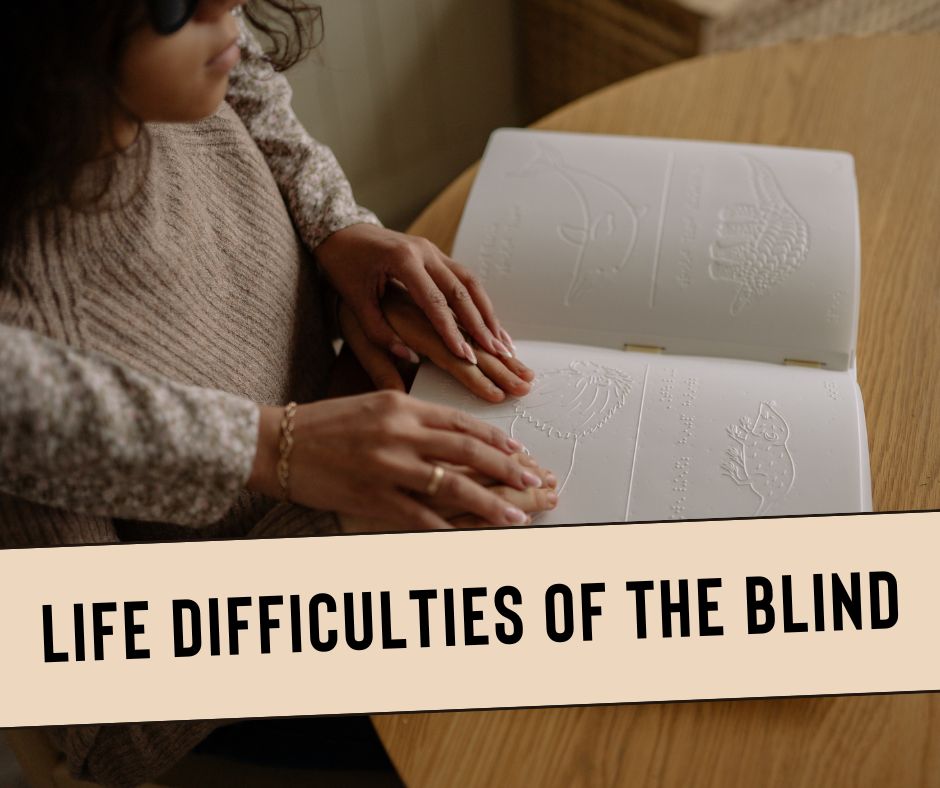The obstacles to daily life for the visually impaired are not limited to their condition. People who are visually impaired are no different from anyone else. Is this as straightforward as it seems to us?
Those who aren’t regarded as “average,” such as the visually handicapped, have a more challenging time than the average person. The point of this post is to bring attention to the problems that people who can’t see have to deal with every day because they are different.
Information availability
Vision is a person’s primary sensory modality. In just a few seconds of looking around, we can see that the vast majority of the data available is visual. In our daily lives, we are constantly exposed to graphic information conditions, such as railway station timetables, signs pointing the way or warning of danger, and billboards advertising newly released products.
Since being able to get information is a big part of being independent, the fact that most of this material is inaccessible to the blind and visually impaired makes them much less independent.
Being on the verge of becoming intrusive is a common problem for the visually impaired, as sighted friends, family, and even strangers often go out of their way to assist them. When people act this way, they often assume that someone who is blind or has impaired vision needs their help. Although it may take longer, blind people can complete any task.
In a worst-case scenario, rushing to aid a visually impaired person without first asking or being asked to do so could make them feel dependent rather than capable. In addition, if a person who is blind is never allowed to practice doing anything independently, they will never develop the skills necessary to accomplish it.
Discrimination in modern society
Being visually impaired in a world designed for the sighted inevitably leads to a higher number of everyday accidents. Minor mishaps are expected and accepted, such as stumbling over a chair left out from under the desk or knocking over a drink placed perilously close to the edge of the table.
However, sighted people sometimes attribute these occurrences to the visually impaired’s lack of capacity to do activities when they result from our environment’s inaccessibility.
People’s intelligence and happiness have nothing to do with whether or not they have low vision. For those who can see, it’s hard to fathom a world without sight, but that doesn’t mean those who are blind or visually handicapped live in misery.
Getting and keeping a job are two very different challenges for people with visual impairments. It’s easy to see how hiring a blind person could be risky for a business if adequate accommodations are in place.
This not only severely limits visually impaired and financially independent people, but it also has a detrimental effect on their self-esteem. People who can’t see well don’t have as much freedom because they have fewer ways to make a living.
Recreational opportunities are limited
People with low or no vision because of barriers to access. In addition, there’s time for fun and games. Visiting a museum is one of the few simple, inclusive, and accessible activities for the visually impaired. Also, easily accessible books are scarce. More than 90 percent of published content is inaccessible to the blind or partially sighted, claims the World Blind Union.
Since many websites do not care about their visually impaired users and do not curate content accessible for the blind and folks with poor vision, the internet itself is not entirely accessible, even if, in the modern era, we all surf the internet for enjoyment. This list doesn’t even scratch the surface of visually impaired people’s issues when finding ways to relax and have fun.
Isolation
Common experience for those with visual impairments, which isn’t surprising when considering the factors mentioned above. Struggling with a vision impairment is already tricky.
Isolation is a common outcome for people who are blind or have impaired vision due to several issues, including the absence of emotional support at diagnosis centers, the scarcity of available activities and resources, the prevailing social stigma, and the absence of career opportunities. This shows that the real problem with blind people is not their lack of eyesight but their isolation.
Everyone experiences difficulties in life. Blind people confront many additional challenges. However, this does not imply that you should sympathize with blind people. They, like any other person, face life’s obstacles and live a normal existence, even if it may not appear normal to the sighted.



